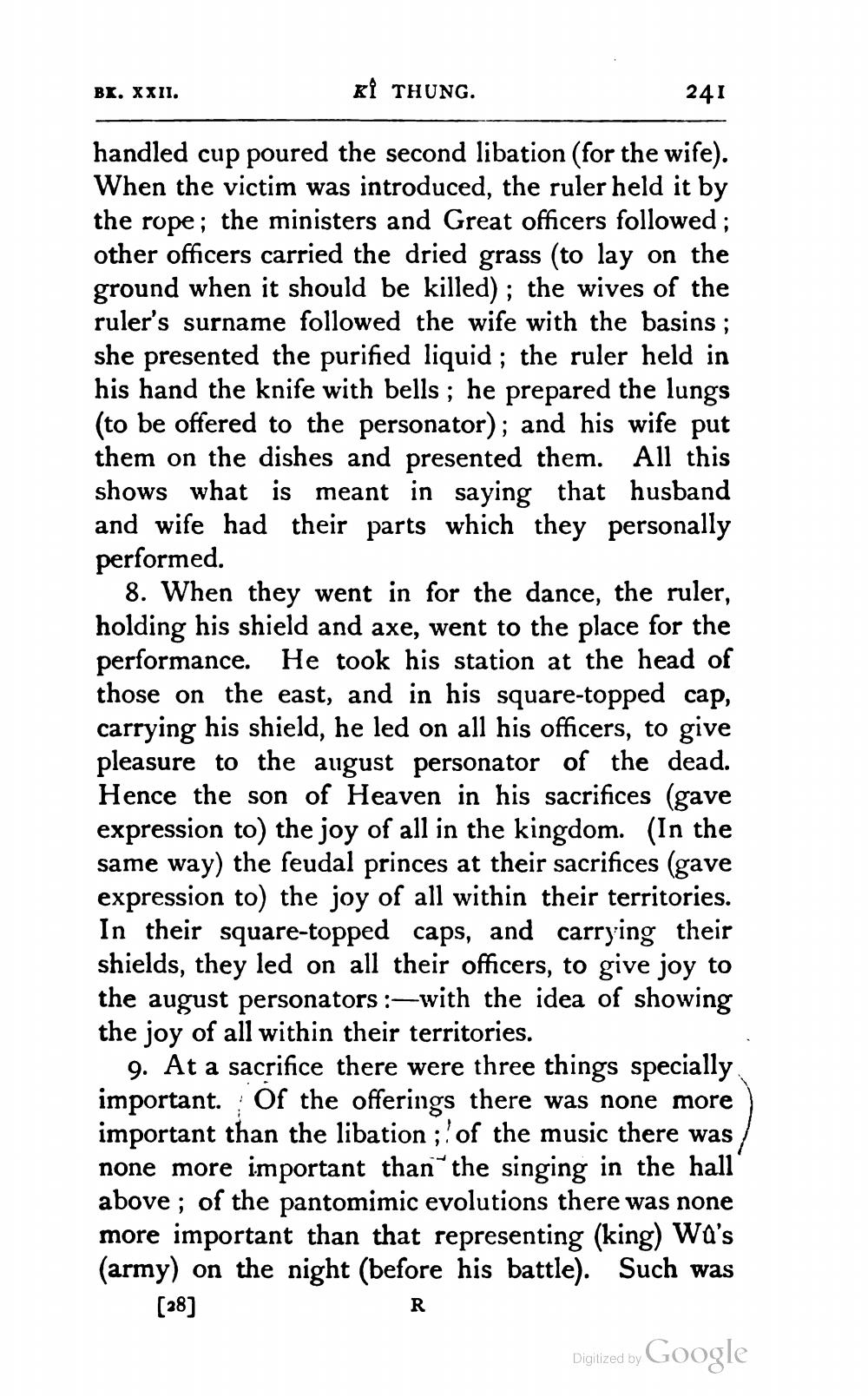________________
BI. XXII.
K THUNG.
241
handled cup poured the second libation (for the wife). When the victim was introduced, the ruler held it by the rope; the ministers and Great officers followed ; other officers carried the dried grass (to lay on the ground when it should be killed); the wives of the ruler's surname followed the wife with the basins ; she presented the purified liquid ; the ruler held in his hand the knife with bells; he prepared the lungs (to be offered to the personator); and his wife put them on the dishes and presented them. All this shows what is meant in saying that husband and wife had their parts which they personally performed.
8. When they went in for the dance, the ruler, holding his shield and axe, went to the place for the performance. He took his station at the head of those on the east, and in his square-topped cap, carrying his shield, he led on all his officers, to give pleasure to the august personator of the dead. Hence the son of Heaven in his sacrifices (gave expression to the joy of all in the kingdom. (In the same way) the feudal princes at their sacrifices (gave expression to) the joy of all within their territories. In their square-topped caps, and carrying their shields, they led on all their officers, to give joy to the august personators :—with the idea of showing the joy of all within their territories.
9. At a sacrifice there were three things specially important. Of the offerings there was none more important than the libation ; of the music there was none more important than the singing in the hall above; of the pantomimic evolutions there was none more important than that representing (king) Wa's (army) on the night (before his battle). Such was [38]
Digitized by Google
R




